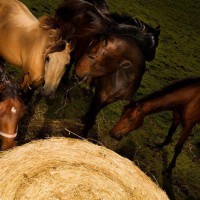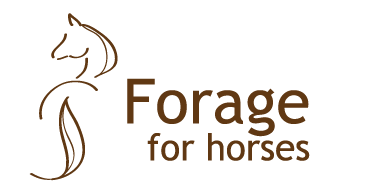The horse’s vitamin requirements

Vitamins are organic compounds that are essential and have metabolic functions but are not degraded as energy sources. They participate in vital functions in both metabolic reactions and the immune system. There are some pro-vitamins, for example β-carotene, which do not possess vitamin activity but can be converted into active vitamins by the body. The horse can together with its gastrointestinal microflora produce several vitamins but the body’s capacity to store vitamins varies. For example it seems as adequate amounts of vitamin A can be stored in the liver to last for 2-6 month, vitamin B12 reserves can last for a year and reserves of thiamin (vitamin B1) are sufficient for only 1-2 weeks. In contrast to us humans a healthy horse does not need ascorbic acid (vitamin C) via the feed as it is synthesised in adequate amounts from sugars (glucose and galactose) in the liver.
The vitamin requirements are not much higher for exercising horses than for sedentary horses, and any increased requirements are compensated for by the increased appetite and the increased feed intake. Exercise per se does not influence the vitamin requirements of horses. There are no real evidence that vitamin supplementation above the maintenance requirements should improve horses’ performance. However, there are theories that extra supplementation of some vitamins above the requirements to prevent deficiency or maintain health could imply health effects which in turn could maybe have positive effects on horses’ performance. More research is needed on this subject.
Horses’ vitamin requirements varies with age and stress situation, if the horse for example have disturbed gastrointestinal function the vitamin B synthesis could be impaired. When horses are on pasture they have no need for supplementation of vitamins, neither if they are given a diet based on good forage and daily get to spend time outside. Processing and storing feed can affect the vitamin content and therefore supplementation can be required. For several vitamins there is a maximal tolerance limit and therefore it is important not to overfeed with various vitamin supplements.
Read more about vitamin E and A in forage here.
Sara Muhonen, AgrD
